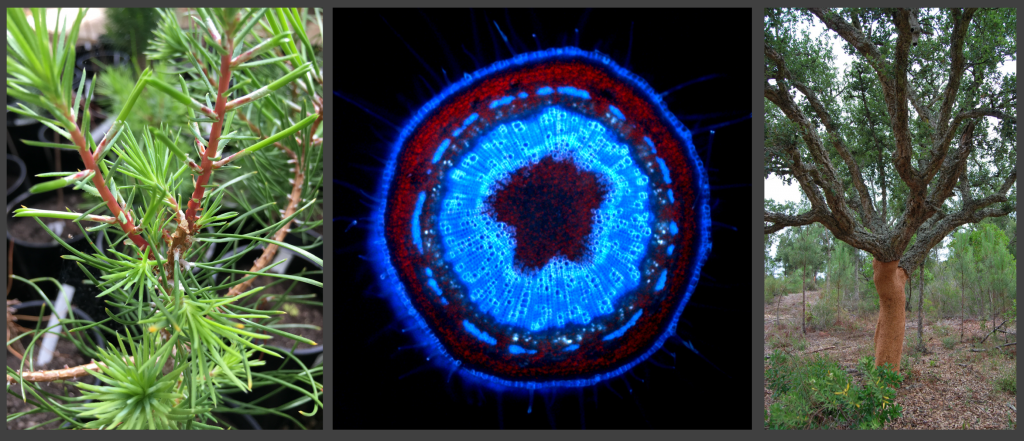[rev_slider alias=”frontpage”]
Forest trees dominate many terrestrial ecosystems and their relevance for social and economic activities is unquestionable. Efficient strategies for improving forest productivity and resilience are required in order to meet the increasing demand for forest products. Yet, tree selection and improvement programs addressing these issues are still incipient or inexistent for many important forest tree species.
At the ForGen Lab we are making use of genomics and molecular genetics to study diverse aspects of forest tree development and stress adaptation. The main lines of research include (i) the regulation of plant secondary growth, which is at the basis of wood and cork formation, and is responsible for the production of most of the terrestrial plant biomass; (ii) embryogenesis in conifers, for understanding basic molecular mechanisms regulating embryo development, and finding ways to optimize large-scale clonal propagation of pines; (iii) identifying differential responses to environmental stresses, mainly biotic factors. We are also developing genomic and computational resources to support forest tree research.
The species we work with include the maritime pine, cork oak, and models such as Populus and Arabidopsis. Our studies at the molecular regulation level, have been mainly targeting transcription factors and small non-coding RNAs as well as their crosstalk to hormones.

Departamento de Biologia Vegetal & BioISI, Faculdade de Ciências, Universidade de Lisboa
Edifício C2, Laboratório 2.4.38, Campo Grande, 1749-016 Lisboa, Portugal
Tel: +351 217500494
